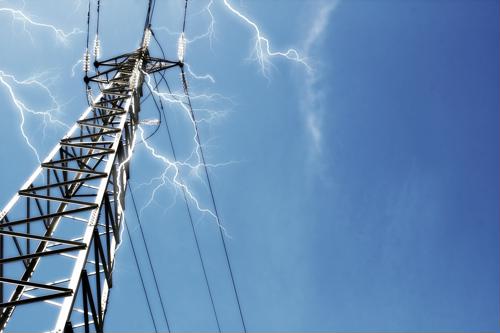Q: Will soaring energy prices benefit the stock performance of oil and gas companies, or will it cause even higher inflation that depresses overall stock prices?
That’s a great question. The answer will take a bit of deconstruction. The question really asks about energy prices, stock markets, inflation, and volatility, all at the same time. That’s OK; we’re familiar with all the above. Here’s the answer, taking each component separately…
Energy prices have risen considerably. One can see that everywhere, from the oil futures market to the gas pump. The reasons are not difficult to discern. Beginning his first day in office, Joe Biden took a series of steps guaranteed to increase oil prices.
These steps included shutting the Keystone XL pipeline, imposing new regulations on fracking in Texas, Pennsylvania, and North Dakota, prohibiting new oil and natural gas leases on federal lands, and issuing executive orders designed to force the federal government to move away from oil and natural gas and embrace alternatives such as wind turbines and solar power.
You don’t need a PhD in economics to predict the result. When demand is growing (due to recovery after the worst of the pandemic) and supply is limited (due to Biden’s actions), you should expect higher prices.
The damage got worse from there. Angela Merkel had spent the past 10 years as chancellor of Germany doing everything possible to eliminate nuclear power, coal, and oil-powered energy production in Germany. Of course, Germany is an industrial and export powerhouse, so it is heavily dependent on reliable energy sources. This trend was worsened when Merkel retired, and a new government was elected that involved a coalition with the Green Party.
The problem in Germany (and elsewhere) is that solar and wind power are intermittent. They work, but not reliably. When you have a power grid, you need a large baseload (consistent, reliable power) just to keep the grid in operation. Solar and wind can’t meet the baseload requirement; they are supplements, not the main source. Germany began suffering power outages and had to resort to coal on an emergency basis to provide energy to industry and cities.
China was worse. China gets more than 50% of its energy from coal. They don’t care about CO2 emissions. Still, China suffered energy shortages because of reduced coal imports from Indonesia and Australia. China had to shut down some industrial production to divert available energy to population centres to keep the lights on. China then joined a mad scramble around the world to buy all the oil and liquid natural gas they could find.
Enjoying the show were Vladimir Putin in Russia and Prince Mohammed bin Salman (MBS) in Saudi Arabia. Russia and Saudi Arabia are two of the world’s Big Three oil producers (the other is the US).
Together, the Big Three produce about 33% of all the oil in the world. The US was already cutting production under Biden. Putin and MBS then dialled down their production to send the price soaring. They made more on higher prices than they lost on lower volume, so this was a smart optimisation move on their part.
Putin’s invasion of Ukraine also boosted natural gas prices since Western Europe is heavily dependent on Russian natural gas, and much of that gas flows through pipelines in Ukraine.
So those are the drivers: Biden’s bad policies, Merkel’s bad policies, China’s mismanagement, and self-interest of Putin and MBS. The question for analysts predicting energy prices is whether these conditions will persist. If yes, the energy prices will at least remain high and perhaps go higher. If no, then energy prices may fall.
We don’t see any change in policy coming. Biden is committed to a Green New Deal and will not retreat from his anti-oil and gas policies. Germany must now bow to the Green Party and will not reverse its opposition to nuclear, coal, oil, and natural gas (even though it depends on natural gas). China’s coal war with Australia will not be over soon, and there’s not enough natural gas in the world to satisfy all the demand. Putin and MBS are expert players who will manipulate output to maximise revenues. So energy prices will remain at high levels and gradually go higher.
One result will be higher stock prices for energy companies, especially the major ones such as ExxonMobil, Shell, BP, and Chevron. These companies have been beaten down because of the politics of the Green New Deal and anti-oil activism by politicised asset managers such as Larry Fink at BlackRock and the California Public Employees’ Retirement System (CalPERS).
Still, the demand for energy is not going away. Global energy demand is rising faster than solar, wind, and hydroelectric can come onstream. Even if you favour those alternatives, they cannot fill the gap between limited supply and rising demand. Oil and natural gas will be required, whether the Greens like it or not. When you have beaten-down stock prices and built-in demand, that’s a recipe for a rally in those stocks.
The third part of the question is whether inflation (caused, in part, by higher energy prices) will depress stock prices in the long run. There’s a missing link in that question, which is economic performance. It is possible to have strong growth and higher stock prices in an inflationary environment. In fact, it’s not unusual in the early stages for both. Of course, real growth is lower than nominal growth by the amount of the inflation. But stock prices are nominal, not real. So the early stages of inflation can be accompanied by higher stock prices.
This gives the public some comfort, as if to say, ‘Who cares about inflation, my portfolio is going up!’. Only later does it occur to investors that when they adjust their portfolios for inflation, their stocks are not going up at all in real terms. That’s when the correction sets in.
There’s also a tight relationship between energy prices and real growth. If energy prices are going up along with the price of everything else (generalised inflation), then the momentum may continue as described above. But if energy prices are going up by themselves in a kind of supply shock scenario, there’s a feedback loop. In this kind of environment, higher energy prices are a good leading indicator of lower energy prices.
Put differently, supply shock price increases at a time when other prices are not going up imposes real costs on the economy and slows growth. In this scenario, the higher energy prices can actually point to a recession and a stock market correction, or even a crash. That’s what happened in 1974 after the first Arab oil embargo price shock of 1973. The stock market hit a bottom on 6 December 1974, after a 43% crash. It was a bloodbath.
It’s too soon to tell if we’re facing generalised inflation or just a supply-side shock in oil prices. I lean toward the latter view. Based on this, my expectation is higher energy prices, higher energy stock prices, and continued stock market strength in the short run. Beyond that, I expect higher oil prices may catch up with growth and the stock market by late 2022.
Regards,
 |
Jim Rickards,
Strategist, The Daily Reckoning Australia
This content was originally published by Jim Rickards’ Strategic Intelligence Australia, a financial advisory newsletter designed to help you protect your wealth and potentially profit from unseen world events. Learn more here.

